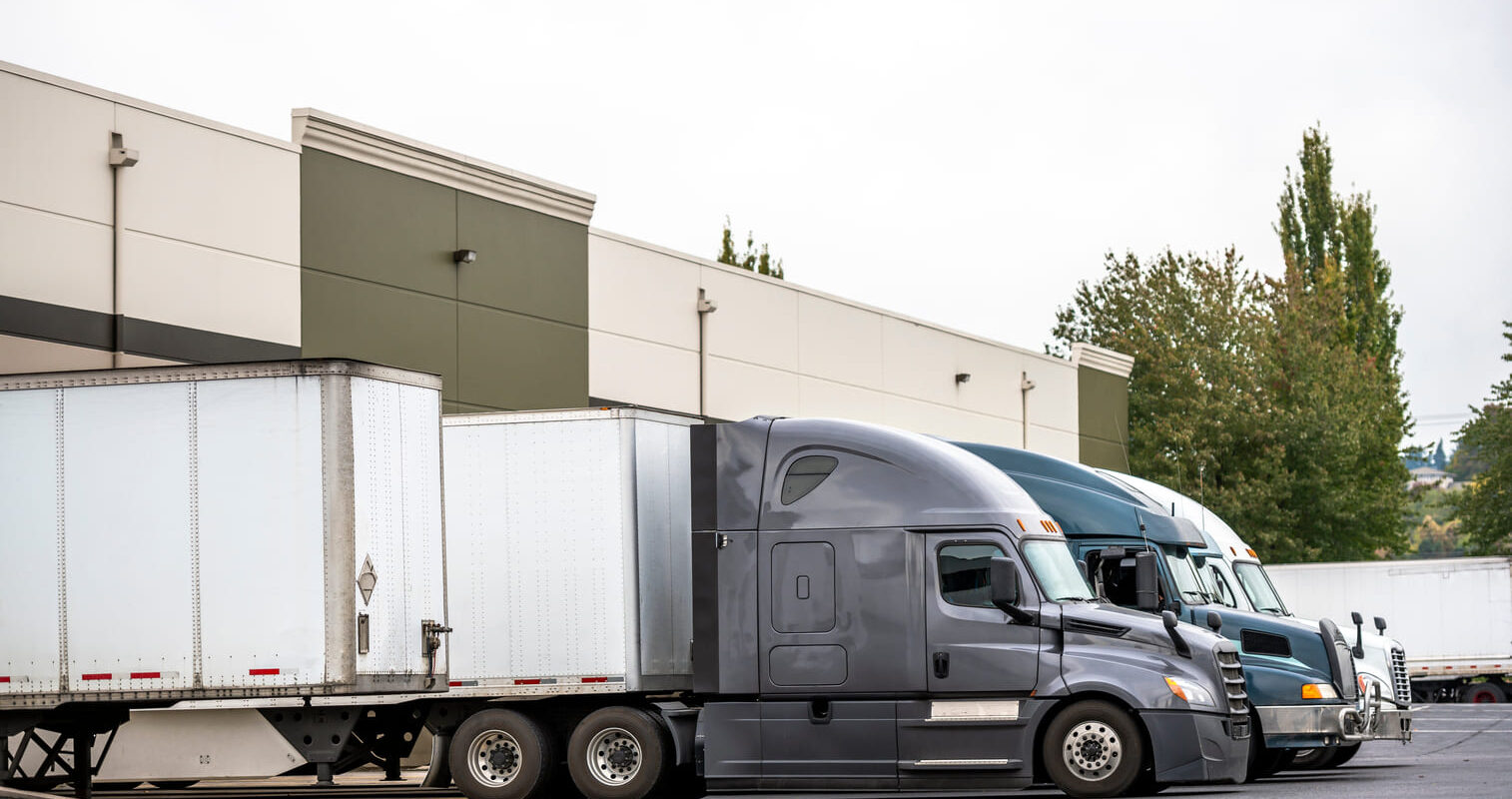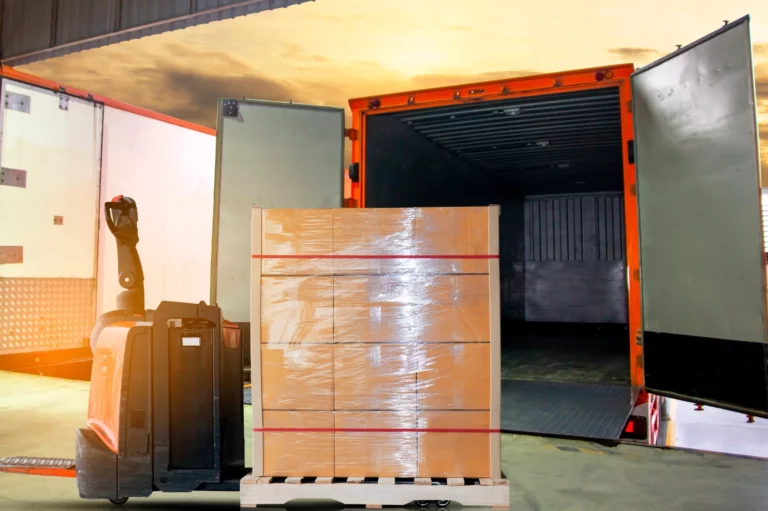Dock-to-Dock Delivery: A Comprehensive Guide

Dock-to-dock delivery means shipping goods straight from one loading dock to another with no intermediate stops. In other words, a shipment is picked up at the origin dock and delivered directly to the destination dock, bypassing extra handling or storage. This direct approach cuts out delays and extra labor – making deliveries faster, cheaper, and less prone to damage. In this guide, we’ll explain what dock-to-dock delivery is, how it works, its benefits, and how it relates to cross-docking and dock-to-stock processes.
What is Dock-to-Dock Delivery?
Dock-to-dock delivery is a shipping method where goods move directly from one warehouse dock to another without any intermediate stops or handling. A full truckload, for example, may be loaded at the origin dock using a forklift or crane, then driven straight to the destination dock for unloading. This method minimizes transit time and reduces risk by eliminating extra handling or storage. It’s especially effective for large, heavy, or palletized freight that doesn’t require in-store delivery — essentially anything that can be loaded at one dock and unloaded at another without interruption.
Dock-to-dock delivery is often associated with cross-docking, as the cargo typically stays on a pallet or in its original container throughout the transfer. The main requirement is that both the origin and destination locations are equipped with loading docks that support quick and efficient handling. In simple terms: dock-to-dock means moving goods from loading dock A to loading dock B, with no storage stops in between.
How Dock-to-Dock Delivery Works
The dock-to-dock process is straightforward. Here are the typical steps:
- Load at Origin Dock: The freight is loaded onto a transport vehicle (truck, container, rail car, etc.) at the origin warehouse’s loading dock. Forklifts, ramps, or cranes are used to move goods onto the vehicle.
- Direct Transportation: The vehicle travels directly to the destination. Because there are no planned stops, the cargo usually stays on the same truck (or rail car) all the way.
- Unload at Destination Dock: At the receiving warehouse’s dock, the shipment is unloaded for storage or further dispatch. Forklifts or dock equipment take the goods off the vehicle and into the facility or onward freight.
Because dock-to-dock skips intermediate warehousing, the cargo avoids extra touches. In a proper dock-to-dock service, goods are loaded and unloaded at designated docks equipped with the necessary handling equipment. In other words, as long as both docks can handle the load, the goods need not leave the pallet or container until they reach their final dock. This keeps products moving smoothly straight through the supply chain.
Benefits of Dock-to-Dock Delivery
Businesses choose dock-to-dock delivery because of its efficiency and cost-savings. Key benefits include:
- Faster Transit: With no interim stops, shipments arrive more quickly. Direct delivery cuts out extra loading/unloading, so goods reach the destination dock sooner.
- Lower Handling Costs: Fewer transfers mean less labor. Dock-to-dock bypasses intermediate warehouses, cutting the labor and fees associated with multiple handlings.
- Reduced Damage Risk: Each extra move carries a risk of damage or loss. Dock-to-dock keeps cargo on the same vehicle, which minimizes the chance of mishaps.
- Simplified Logistics: Fewer steps in transit makes planning easier. With only pickup and drop-off, managing the shipment is simpler and more predictable.
- Greener Footprint: Direct routes often reduce miles traveled and handling equipment usage. Dock-to-dock can have a smaller carbon footprint compared to multi-stop routes.
In short, dock-to-dock shipping speed up deliveries and cut costs. This method minimizes delays, reduces handling costs, and ensures faster deliveries. By consolidating the trip into one direct move, your supply chain becomes leaner and more reliable.
Dock-to-Dock Service Options
Dock-to-dock shipping can be done with various transport modes, depending on distance and cargo type. Common dock-to-dock services include:
- Truckload (Road Freight): Full truck shipments go from one dock to another. Ideal for large freight moving across states. Trucks pick up at the origin dock and drive straight to the destination dock.
- Air Freight: Fast shipments fly between cargo facilities. Goods are trucked to the airport dock, flown to the receiving airport’s dock, and delivered – often used for urgent or high-value items.
- Ocean/Sea Freight: For international bulk moves, containers travel port-to-port. Cargo ships take goods from the port dock in one country to another port’s dock, suitable for heavy or oversized loads.
- Rail Freight: Cost-effective for heavy, long-distance loads. Goods move on rail cars from one rail terminal (docked) to another.
- Courier/Express: Smaller parcel services can do dock-to-dock by connecting regional hubs. Express carriers pick up shipments and send them through distribution centers directly to the dock at the destination warehouse.
Related Concepts: Cross-Docking and Dock-to-Stock
- Cross-Docking: This is closely related to dock-to-dock. In cross-docking, inbound goods are immediately transferred to an outbound truck (often within the same warehouse) with little or no storage. Cross-docking as moving goods from an inbound shipment… directly onto an outbound shipment with minimal or no storage in between. Cross-docking usually happens under one roof (same facility), whereas dock-to-dock refers to transporting goods between different facilities. In practice, most carriers use the terms interchangeably when talking about direct dock-to-dock moves, but it’s good to know the difference.
- Dock-to-Stock (Inbound Processing): This is a warehousing term rather than a shipping method. Dock-to-stock (sometimes called dock-to-inventory) starts when a truck unloads at the receiving dock and ends when the goods are stored on the warehouse floor or racks. Unlike dock-to-dock, which moves goods between locations, dock-to-stock is about getting items from the dock into inventory. Both aim to reduce delays: dock-to-stock speeds up inbound handling, just as dock-to-dock speeds up shipping.
Understanding these terms helps in planning. For example, a retailer might use dock-to-dock to move pallets from a factory to their distribution center, then use efficient dock-to-stock procedures to get them onto shelves quickly.
Is Dock-to-Dock Delivery Right for You?
Dock-to-dock shipping offers big advantages, but it’s not a one-size-fits-all solution. It works best when you need direct, fast transfers. Industries like retail, e-commerce, manufacturing, and distribution often benefit greatly. If you have regular bulk shipments that only need to go from one warehouse to another, dock-to-dock cuts costs and transit time. For example, a manufacturer sending finished goods to a regional warehouse can avoid extra stops entirely.
However, dock-to-dock is less useful if your freight needs special handling, assembly, or long-term storage. If your goods require extensive sorting, assembly, or packaging, then a full-service warehouse approach might be better. Similarly, companies that routinely stock large inventories for extended periods may prefer traditional warehousing. In short, if you need to process or store items, dock-to-dock isn’t the right choice. But if your priority is speed and you’re simply moving freight, it can be invaluable.
OLIMP Warehousing’s Nationwide Cross-Docking Service
At OLIMP Warehousing, we offer cross-docking (dock-to-dock) services across the USA. Our nationwide platform connects shippers with qualified providers who can pick up your freight at any origin dock and deliver it directly to the destination dock – coast to coast. Each OLIMP facility is fully equipped with loading docks, forklifts, cranes, and ramps to handle direct transfers. Whether your shipment is a full truckload of pallets or specialized machinery, we can arrange a direct dock-to-dock pickup and delivery.
Using our network, you can streamline your supply chain. Simply request a quote and we’ll match you with carriers ready to execute the dock-to-dock move you need.
You may be interested in

The Ultimate Guide to Cross-Docking: Definition, Types and Benefits
Cross-docking is a logistics strategy where products from inbound vehicles are immediately transferred to outbound transport with little or no warehousing. In other words, goods “cross the docks” at a specialized facility instead of entering long-term storage. By minimizing handling and storage time, cross-docking accelerates delivery and reduces supply chain costs. For example, a cross […]

Best Practices for Warehouse Receiving Processes
Warehouse receiving is the essential first step of warehouse operations – it encompasses everything from unloading inbound deliveries to updating inventory records. In practice, an effective warehouse receiving process means checking in, inspecting, and storing all incoming goods promptly and accurately. How inventory is received at a warehouse sets the tone for the rest of […]

Full Truckload (FTL) Shipping Services: How It Works, Costs & Use Cases
Full truckload shipping (FTL) is a freight transport mode where one shipper’s cargo occupies an entire truck trailer. In FTL service – also known as FTL trucking or full truckload freight transport – a carrier dedicates a 48′ or 53′ trailer exclusively to one shipment. Unlike less-than-truckload (LTL) shipping (where freight from multiple shippers shares […]
Ready to streamline your warehousing needs?
Request a quote today and discover how OLIMP's tailored solutions can optimize your operations